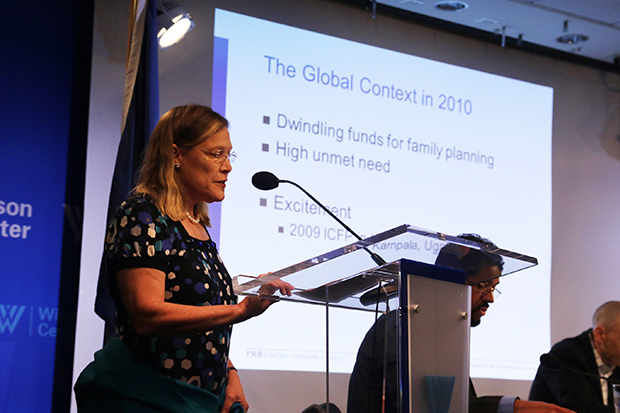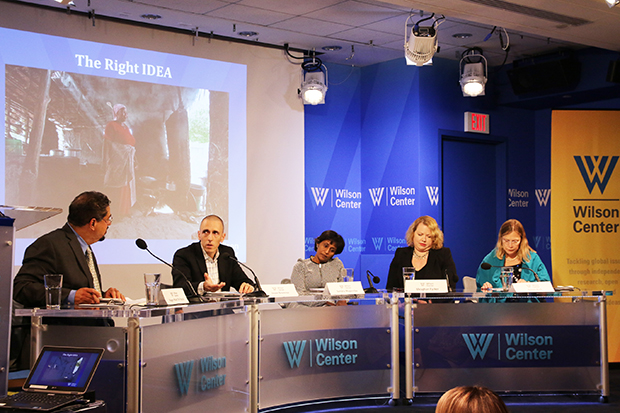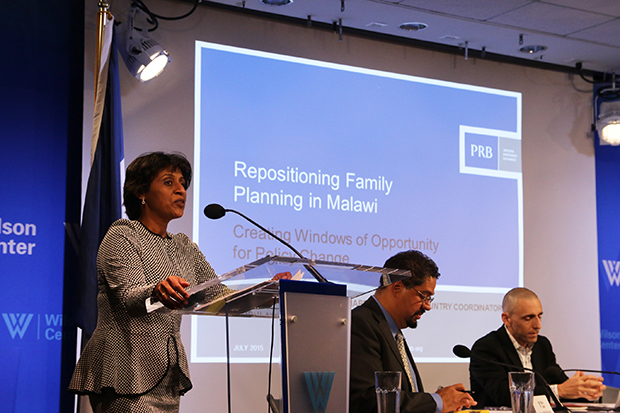Sandra Mapemba on Repositioning Family Planning in Malawi
(July 2015) To act, decisionmakers need ideas—and the will to implement them. Effective policy engagement requires providing decisionmakers with accurate data, compelling stories and concise synthesis of applicable knowledge. On July 15, a panel of Population Reference Bureau (PRB), Wilson Center, and Family Planning 2020 experts, including PRB’s Susan Rich, vice president of Global Partnerships; Jason Bremner, associate vice president of International Programs; and Sandra Mapemba, Malawi country coordinator, shared their experiences with repositioning population and family planning as development priorities and their advice for increasing political commitment for policies and programs designed to make women and girls, men and boys, healthier and more productive.

Susan Rich, vice president of Global Partnerships, starts off the presentations from PRB.

Jason Bremner (second from left), associate vice president of International Programs, PRB, answers a question from moderator Roger-Mark De Souza, director of Population, Environmental Security, and Resilience, Wilson Center.

Sandra Mapemba, Malawi country coordinator, PRB, addresses the audience.
Visit the Wilson Center’s website to watch the live recording of the event. For even more lessons learned, explore PRB’s interactive feature, IDEA Success Stories.
To an audience of more than 100 at the Wilson Center, viewers of the livestream broadcast, and participants on Twitter at #idea_eop, the panel looked forward to key issues on the horizon including FP2020, adoption of the Sustainable Development Goals, and the global resilience agenda. Other speakers were: Meaghan Parker senior writer/editor, Environmental Change and Security Program; Beth Schlachter, executive director, Family Planning 2020; and Roger-Mark De Souza, director of Population, Environmental Security, and Resilience, Wilson Center, who moderated the event.
Through the USAID-funded IDEA Project—Informing Decisionmakers to Act—PRB and the Wilson Center provide evidence-based, accessible, cutting-edge communications; train and support U.S. and international media to influence policy change; build the communications capacity of institutions, researchers, and advocates; and nurture communities of policy champions.

